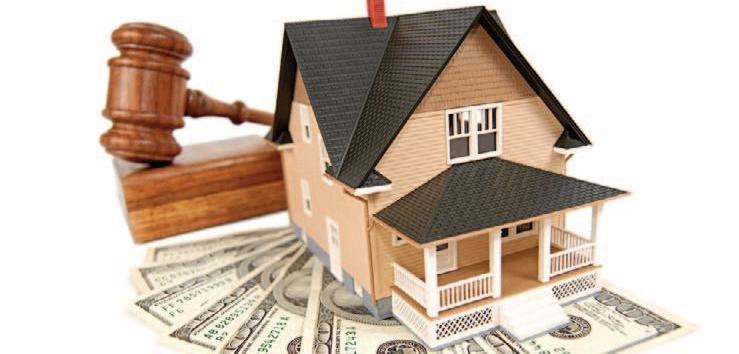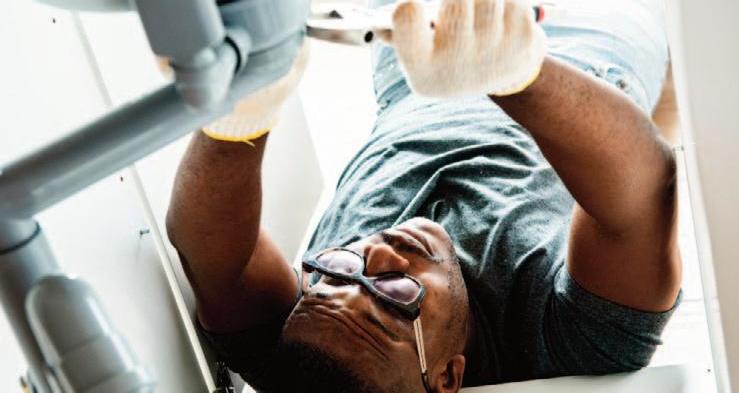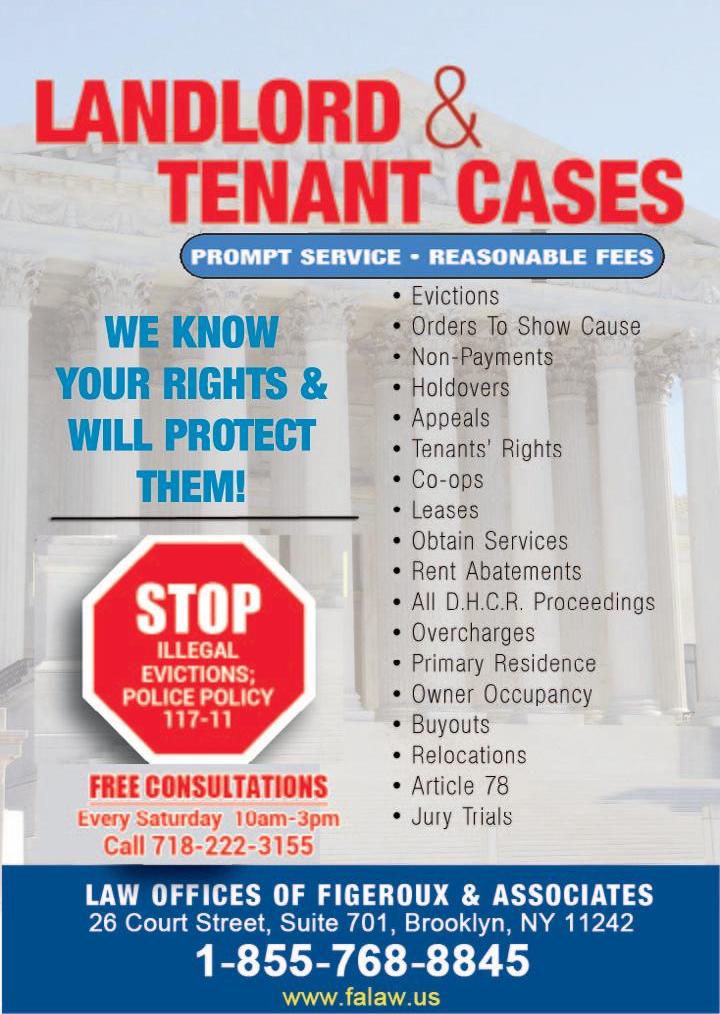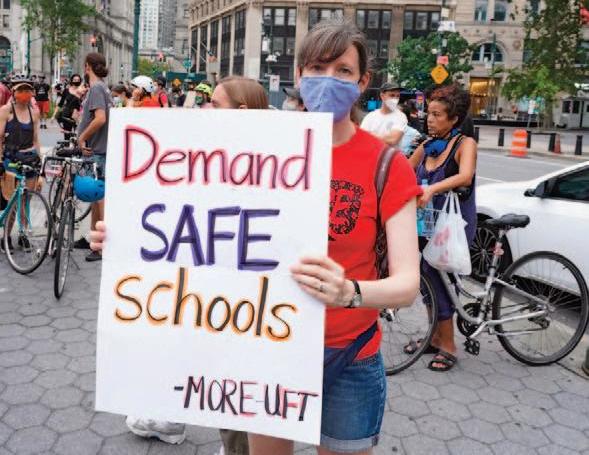
17 minute read
Education
Mayor de Blasio and Chancellor Carranza Announce Test and Trace Protocols for NYC Public Schools
NEW YORK: Mayor Bill de Blasio and Schools Chancellor Richard A. Carranza today announced health and safety protocols, including guidance for testing and tracing, for schools for the start of the 2020-21 school year. These protocols will apply to all school communities and will help prevent the spread of COVID-19. “We are doing everything in our power to keep kids healthy while ensuring they are getting the education they deserve. These rigorous test and trace protocols will keep our students and staff safe as we start off this new school year,” said Mayor de Blasio. “New Yorkers did the incredibly difficult work reducing the risk posed by COVID-19, and as a result we’re in a better position than any other city in the country to safely resume in-person education under the current conditions and with clear, consistent health protocols,” said Schools Chancellor Richard A. Carranza. “The safety and health of our school communities is always our first priority – before, during, and after the COVID-19 pandemic – and we will remain vigilant in monitoring health conditions this fall while driving toward academic excellence for every student.” In preparation for the start of school, the DOE is purchasing large orders of hygiene supplies on behalf of schools. These supplies include, but are not limited, to, facial coverings for students, teachers, and staff; disinfectant; hand sanitizer; and electrostatic sprayers. School leadership and facilities staff in every school are reviewing school space and making necessary repairs and adjustments to ensure safe conditions for in-person student learning this fall. All staff members will be asked to take a COVID-19 test in the days before the first day of school. School staff will have priority access for free testing at 34 city-run testing locations, with tests provided with expedited results. This testing is also available for families citywide. When school buildings reopen, all schools will be required to enact precautions to prevent, identify, and address the spread of COVID-19. Daily precautions include: •An isolation room for students with symptoms with a dedicated staff member or health profes-
Advertisement
Conclusion of Investigation
1 confirmed case
At least 2 cases linked together in school, same classroom
At least 2 cases linked together in school, different classrooms
During Investigation
Close Classroom, transition to remote learning
Close Classroom, transition to remote learning
Close school building, transition to remote learning
At least 2 cases?linked together by circumstances outside of school (i.e., acquired infection by different setting and source)
At least 2 cases?not linked but exposure confirmed for each outside of school setting
Link unable to be determined Close school building, transition to remote learning
Close school building, transition to remote learning
Close school building, transition to remote learning
Post Investigation
Classroom remains closed for 14 days; students and staff in close contact with positive case self-quarantine for 14 days.
Classroom remains closed for 14 days; students and staff in close contact with positive cases self-quarantine for 14 days
Classrooms of each case remain closed and quarantined, additional school members are quarantined based on where the exposure was in the school (e.g., the locker room)
School opens post investigation, classrooms remain closed for 14 days
School opens post investigation, classrooms remain closed for 14 days
Close school for 14 days
sional, •Physical distancing and required facial coverings, •Cleaning throughout the day and nightly disinfecting, and •Clear communication with families and school community.
If a student or teacher is feeling sick, they are required to stay home and, if their symptoms are consistent with COVID-19, are asked to get tested. If a student begins experiencing symptoms in school, they will be isolated and monitored by a dedicated staff member until they are picked up by their parents or guardians. Staff members who become symptomatic at school are asked to immediately leave the building. Whether symptoms begin at home or in school, there will be a clear flow of information to facilitate fast action and prevent spread. A positive case can be reported to a school by a staff member, a parent, or a student. A positive confirmed case will trigger an investigation by the NYC Test + Trace Corps and DOHMH to determine close contacts within the school. Schools will communicate to all families and students within school any time a case is laboratory confirmed. The DOE is working in tight coordination with DOHMH and the NYC Test + Trace Corps to identify, isolate, and prevent spread of COVID-19. In the event that there is a laboratory-confirmed case in a school, all students and teachers in that class are assumed close contacts and will be instructed to self-quarantine for 14 days since their last exposure to that case. Additionally, DOHMH and NYC Test + Trace Corps will begin an investigation into the risk of exposure to the school community and work with the DOE to issue clear guidance and decisions for next steps based on the outcome. For the potential investigative conclusions outlined above, all decisions to quarantine classrooms or close schools will depend on the facts of each investigation. Whenever a student is isolating or quarantining at home, the expectation is that they continue engaging with learning remotely if they are feeling well enough. If a school is closed, the school will communicate by 6 P.M. on the night before about the status of opening the next morning, based on the status of the investigation. A school building will not reopen without confirmation from public health experts that it is safe. While developing this reopening plan to submit to New York State, the Department of Education consulted with the Department of Health and Mental Hygiene (DOHMH), NYC Health + Hospitals, the NYC Test + Trace Corps and labor officials. These protocols center the health of our students and staff at the very core of this school year, while pursuing the resumption of in-person learning and educational services. The City will continue to closely monitor health conditions, and if community transmission begins to rise across the boroughs, a decision may be made to close all schools and switch to full-time remote learning.p
Buying a Foreclosure: 5 Things to Know

BY JANET HOWARD EQUITY SMART REALTY INC
Buying a property out of fore closure can be a very smart move, financially. But it can also be complicated, expensive, and stressful. Here are 5 things to keep in mind before you take a first step in that direction:

Cash or Pre-approval Required
Buying a house that has been returned to the lender through foreclosure means dealing with bureaucracy rather than with a motivated seller. Large lenders are notorious for taking their time to approve a contract, even if the offer is for the exact amount specified. Then there's the paperwork, which can seem endless. Most lenders require that prospective buyers have cash on hand, or a pre-authorized loan in place last month advanced legisla tion to hold real estate profes sionals accountable for discriminatory housing practices. The bill, S.6874A, sponsored by Senator James Gaugh ran, penalizes licensed real estate bro kers and salespersons by revoking or suspending their licenses, or issuing a fine if they violate the Human Rights Law, which includes housing discrim ination. “Housing discrimination and preda tory practices will not be tolerated in New York,” Senate Majority Leader Andrea Stewart-Cousins said. “By ad vancing this legislation, the Senate Majority is sending a clear message that you will be held accountable for engaging in unfair, discriminatory, and racist housing practices. I applaud Senator Gaughran for sponsoring this legislation and continuing the Senate Majority’s commitment to equal and fair access to housing for all New in order to even submit an offer.
There's Little Room for Negotiation
Although in certain circumstances there may be an opportunity for some discussion about the price, that is not the norm in a foreclosure. The minimum price is usually written in stone, even during an on-site property auction, and the only direction is Senate Majority Leader Stewart Cousins Yorkers.” Bill Sponsor, Senator James Gaughran, said, “This legislation will ensure that real estate agents who violate New York's Human Rights Law by “steering” minority families towards certain communities, or other racist practices that deny individuals the dignity of choosing their home and neighborhood, face license revocation. Our nation's soul is in crisis and public of ficials must speak out against racism and end segregation and discrimination in our up! The days of buying foreclosures for a song are long past, if indeed they ever re ally existed.
As-Is Condition Means Just That
Some buyers specialize in foreclosures while other investors run in the other direc tion. There are pros and cons, of course, to
Senate Majority Advances Legislation Penalizing Housing Discrimination
The Senate Democratic Majority

every transaction. Sage advice is to always
Senator Gaugran

society, once and for all. I thank Leader Stewart-Cousins for her his toric leadership in swiftly shepherding passing this bill and fighting for a more fair, and just society.” This legislation, S.6874A, will: Make clear the Department of State is able to revoke or suspend a license, or issue a fine, for violations of the Human Rights Law, which includes the State's prohibitions on housing discrimination. n
No. 29

pay the fee for a property inspection on a foreclosed property, even if you have experience. A third-party evalu ation is especially valuable if the home has been vacant for an extended period of time, if the utilities have been turned off, or if there are exten sive visible defects. Foreclosures can be like icebergs: What you see may be nothing com pared to what lies below the surface. Also, with the findings in writing, al ways confirm that your loan commit ment and insurance quotes will be honored in spite of the existing condi tion. continued on page 4
2 Advantages of a Listing Agent
Before listing your home for sale, many home sellers are tasked with the decision to hire an agent or make the venture alone. While the FSBO (For Sale By Owner) avenue might save you a little money by avoiding the commission cost of a listing agent, a real-estate transaction is best navigated with the guidance of an expert. Recent data from the National Association of Realtors reveals that only 7% of FSBO attempts were actually successful in 2017. Typically, these sales were made when sellers already had a buyer in mind. Finding the right listing price is considered the most dif

ficult task for this type of sale. Before attempting to join this small percentage of those who sell their homes without expert help, consider the advantages of hiring a professional real estate agent.
Setting the Price
Choosing a price point is more involved than having a home appraised and asking that amount. In fact, while an appraisal is a good starting point, an expert can access a CMA or comparative market analysis to analyze current trends in the area including what similar homes sell for, current market trends, interest of local buyers, and how long homes are listed. With this important information, a real estate expert can price your home to ensure a profitable sale with a quick turnaround.
Suggest Renovations
A real estate agent is efficient in finding flaws in your property that may slow down a transaction or effect bids from buyers. For instance, if you live in an area that experiences heavy rain fall, a new roof or air-tight windows and doors may be necessary before listing. Homes for sale in regions with intense summers and brutal winters can benefit from an updated HVAC system. If you decide to purchase a new unit, make sure to keep warranty paperwork on hand to pass on to the next owner. Small incentives like this can make the difference between receiving unimpressive offers and making a sale. Be sure to brag about recent upgrades in your listing. Buyers know what they’re looking for, and an agent understands how to advertise your property so they can find it.
Dealing with Negotiations
Once you have accepted an offer from a home buyer, there is still one roadblock in the way before you head to close. Most offers are contingent on a home inspection, meaning an independent professional will inspect the property for flaws or defects that may otherwise go unnoticed. Keep in mind, some states require you to disclose information about known problems that may affect the value of your home. If you fail to inform them, you may be held legally responsible for fines and fees or the rescission of a sale. Your real estate agent is an expert on the sometimescomplicated responsibilities that sellers face and can ensure your deal won’t fall through. If unexpected problems are discovered, it’s common for a new offer to be written up. An agent will use his expertise to negotiate with the buyer’s agent to maintain fair terms.

Free Consultation
Need assistance? We will be happy to meet with you and share our guidance. Schedule an appointment today. call us at 855-768- 8845. n
Call 888-670-6791


KNOW YOUR RIGHTS Buying a Fixer-Upper
If you like HGTV, the idea of buying an old home and turning it into your dream home can seem fun, romantic and the perfect way to get what you’re looking for, maybe even breaking into the neighborhood or suburb you never thought you could afford. While it’s not a bad idea, you should go into such a venture with a clear idea of what a house needs, how much repairs will cost, whether you have the time, skills and tools needed to make those repairs and if this is the kind of investment you want to make. This Old House walked through things people should know.
Take a Hard Look at the Numbers
Assess what needs to be done, then add up the costs to renovate the property, including the costs of materials and labor. Subtract the costs of renovation from the home’s likely value when you’re done, then take off another 10 percent or so to cover unexpected expenses. That number you’re left with is what you should be willing to pay.
Avoid Significant Structural Improvements
Major repairs like plumbing and electrical system overhauls, fixing the foundation or extensive roof or wall work are expensive yet rarely raise the value of the house enough to offset renovation costs because they’re invisible repairs. Look for houses in need of aesthetic improvements — a paint job, new flooring, yardwork, windows, new countertops and so on. These are easier to do, they’re less expensive, and they’re noticeable.

Be Prepared to Get Dirty This doesn’t include plumbing, wiring or work that requires expertise if you don’t have it, but for most people, a fixer-upper is only a good deal if they do much of their own labor. Be realistic about how much time you can devote to home improvement and what you’re able to do. If you’re prepared to slowly renovate over several years, that maybe a better investment than a house that needs immediate improvement to even be livable.

Your Success in Real Estate Starts Today
Know Where Your Money is Coming From
You may be eligible for a renovation loan tied to your mortgage. These loans borrow against the house’s value after the work is completed, and interest is tax-deductible. The FHA, Fannie Mae and Freddie Mac offer renovation loans as well. Another option for DIYers is a home equity line of credit. If you're currently embarking on buying a fixer-upper, you may want to contact one of our real estate professionals for more information.Schedule an appointment today by calling 888-670-6791. n


Call Equity Smart Realty at 888-670-6791 for a FREE consultation.

When you succeed, the Chamber Coalition succeeds. That’s why we’ve partnered with Kaplan Real Estate Education. From prelicensing and exam prep to continuing education, you’ll be guided through every stage of your real estate career.

Education that fits your schedule Visit www.nacc.nyc/kaplan At check out enter the code Chamber5. Questions? Call 800-636-9517.
HOME OWNERSHIP Hidden Costs: What to Know When Buying a Home
When purchasing a home, most people focus on what their costs of ownership will be after they close on the sale. While the costs of a mortgage, insurance, taxes, and maintenance need to be ac counted for, many people end up overlook ing the costs that could occur prior to and during the loan closing. Prior to purchasing a home, there are many unexpected costs that all home buyers need to be aware of:
Third Parties
The first cost that buyers need to be aware of is the cost of third-party services. When purchasing a new home, most mortgage lenders will require a borrower to order an appraisal and property inspection report. Most buyers will also benefit by hiring an attorney to review the loan documents and handle the closing. While these services are very valuable, they can be quite expensive and could end up costing a few thousand dollars depend ing on the complexity of the purchase. Buy ing a home is a huge investment, you want to avoid shortcuts and oversights that may come back to haunt you. Prevention is al ways better than cure.
Bank Charges
Another commonly overlooked expense is the cost of closing with the bank. While mortgage lenders are very forthright with their interest rate offers, they may not always tell you — and sometimes simply don't know — exactly what the total closing costs will be until the deal gets closer to completion. Closing costs with banks will include the origination fees, mortgage points, under-

writing fees, title costs and various other costs. These expenses are typically at least $1,000 but could easily end up costing $5,000 or more based on the loan you are receiving. Since they can be so significant, it's a good idea to receive a full title cost statement a few days prior to closing.
Tax Bill
A significant fee that many home buyers forget to include in their budget is the cost of paying city or state taxes. Depending on what state the home is being bought in, there could be hefty purchase costs, mortgage stamp taxes or transfer fees. In many cases, these fees could cost over one percent of the purchase price, not to mention the ongoing property tax bill after you purchase the home. Overall, buying a new home makes perfect financial sense for many Americans. It's just important that you know what onetime expenses to expect so there are no surprises at the closing table.
Getting Assistance
Now that you are ready to make the commitment, help is just a phone call away. Call us at 888-670-6791.We are ready to assist! n

Buying a Foreclosure/
continued from page 1
The Need for an Experienced Realtor
Navigating the landscape of property foreclosures is a specialty field, and caution is the name of the game. As a prospective buyer of a pre-foreclosure, a short-sale or a foreclosed home, an experienced realtor is your best resource. A real estate professional will help you deal with all timelines and requirements, and has the knowledge and expertise to recommend lenders, inspectors, insurance agents and contractors to help you make a decision.
Always Consider Future Value
Although the initial price might be right, there are additional variables at play in every real estate transaction. What can you expect in terms of appreciation over the short term? What is the long-term outlook for the neighborhood? Will needed repairs and improvements add to the home's value, or simply bring its condition up to standard? Do you plan to live in the home, or is it strictly for resale? Your trusted real estate professional is the best resource to help you thoroughly evaluate all the information about every foreclosure.
Help Is Available
We are happy to help and share our insight and experience to help you with the buying process. Schedule an appointment today. Call 888-670-6791.n


